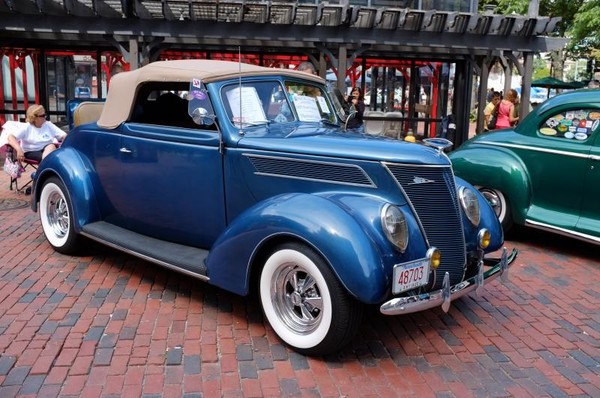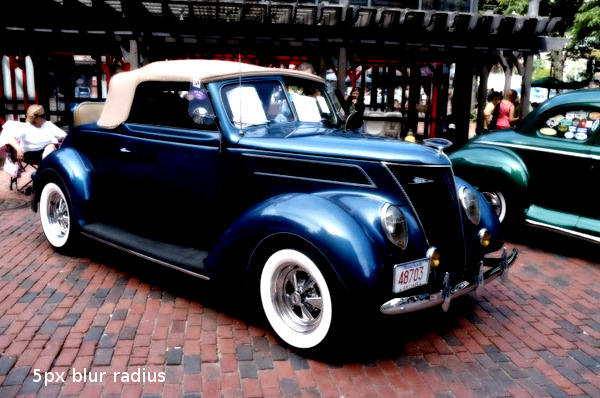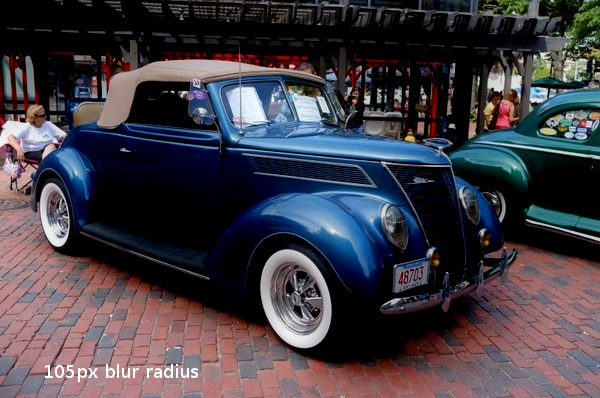

Click on thumbnails to see the effect. Then read the details of each Method in the box down below.
 
|
Step1: resize to 600-800 pixels wide
Step2: duplicate base layer
Then ..... Perform the steps below only on top layer. Then set the top layer "mode" to one of the selections shown (grain extract, etc etc). You can dial back the opacity of the top layer to reduce the strength of these effects.
To start experimenting with larger images, start with a pixel radius blur about 5% of the image width, and change that as you desire. For example, for an image that is 2000px wide, select a blur radius of 100px to start off.
METHOD1
invert colors
blur at 25px
set top layer mode to: grain extract, subtract, difference
set top layer opacity as desired
METHOD2
desaturate
invert colors
blur at 25px
set top layer mode to: grain extract, subtract, difference
set top layer opacity as desired
METHOD2b
desaturate
invert colors
blur at 5px
set top layer mode to: grain extract, subtract
set top layer opacity as desired
METHOD2c
desaturate
invert colors
blur at 50px
set top layer mode to: grain extract, subtract
set top layer opacity as desired
METHOD3
desaturate
*value* invert
blur at 25px
set top layer mode to: grain extract, subtract, difference
set top layer opacity as desired
CONCLUSION: methods 2 & 3 give exact same results.
METHOD4
blur at 25px
set top layer mode to: overlay, hardlight
set top layer opacity as desired
METHOD5
desaturate
blur at 35px
curves to reduce contrast
set top layer mode to: grain merge
set top layer opacity as desired
METHOD6
desaturate
blur at 35px
curves to increase contrast
set top layer mode to: grain merge
set top layer opacity as desired
Note: Generally use Grain Extract if you invert the colors. Use Grain Merge if you don't invert colors. Looks like the same results.
Note: Decreasing the contrast of the top layer, reduces the effect, and vice versa ===>>>
Lower contrast:
Higher contrast:
Note: Increasing blur radius DECREASES the strength of the effect ===>>>

